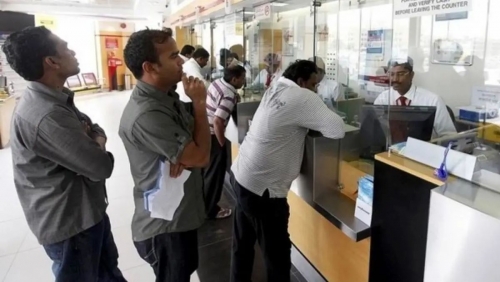Foreign worker remittances from Bahrain saw a slight decline of 2.1% in the first quarter of 2024, totaling around 230.7 million Bahraini dinars compared to 235.6 million dinars in the same period of 2023. However, this reduction occurred amidst a backdrop of increasing foreign worker employment in the Kingdom. Data from the Labour Market Regulatory Authority (LMRA) indicates that the number of foreign workers in Bahrain reached 616.1 thousand by the end of December 2023, showing a 5.8% year-on-year increase. Additionally, the LMRA issued a total of 45,000 new work licenses for foreign workers in the last quarter of 2023, marking a 12.2% increase from the previous year, suggesting a growing economic activity that could potentially drive an increase in remittances.
Several contributing factors may have led to the observed decline in remittances from Bahrain. The global economic slowdown could be impacting remittance patterns as workers are sending less money back home due to economic uncertainty. Furthermore, the composition of the foreign worker population may be changing, with more workers coming from countries with lower average remittance rates. Additionally, rising living costs in Bahrain may be affecting foreign workers’ disposable income, leaving them with less money to send home. Despite these challenges, the outflow of foreign currencies continues to put pressure on Bahrain’s balance of payments, but the Kingdom has managed to maintain positive rates of surplus, strengthening its position against any increase in external financial obligations.
The contracting sector remains the largest employer of foreign workers in Bahrain, with nearly a quarter of new labor licenses issued in the last quarter of 2023 going to this sector. This highlights the crucial role that foreign labor plays in supporting the Kingdom’s economic development. Foreign workers contribute significantly to various sectors of Bahrain’s economy, and their remittances play a vital role in supporting their families back home. The decline in remittances may be a cause for concern, but the overall increase in foreign worker employment suggests a positive outlook for Bahrain’s economy, indicating potential growth in the future.
In conclusion, while Bahrain has experienced a slight decline in foreign worker remittances in the first quarter of 2024, this reduction comes amidst a backdrop of increasing foreign worker employment in the Kingdom. Various factors such as the global economic slowdown, changing composition of the foreign worker population, and rising living costs in Bahrain may have contributed to the decline in remittances. However, the positive rates of surplus in Bahrain’s balance of payments indicate the Kingdom’s resilience against external financial pressures. The contracting sector remains the largest employer of foreign workers, underscoring their significant role in supporting Bahrain’s economic development. With a promising outlook for growth in the future, Bahrain’s economy continues to benefit from the contributions of foreign workers and their remittances.




































